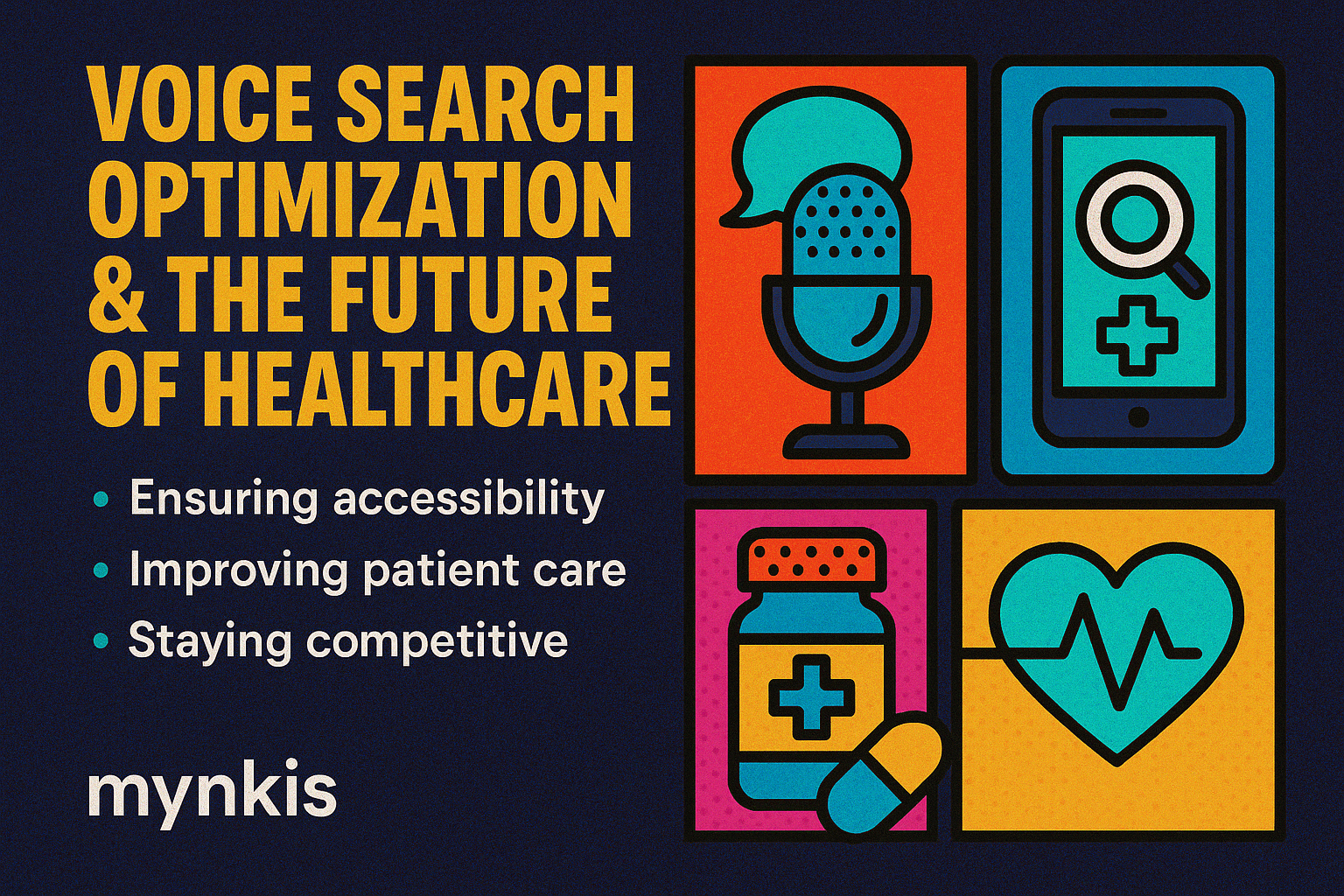Schedule a Demo
Voice search isn't just a cool feature of smart devices; it's rapidly becoming a vital tool for internet users everywhere. With the integration of AI assistants like Alexa, Siri, and Google Assistant into daily life, optimizing for voice search is not just an option—it's essential for maintaining relevance. In my work with operations managers in the healthcare sector, I've seen first-hand how voice search can enhance patient engagement by simplifying access to information. As voice technology evolves, it's critical for healthcare providers, including clinics and hospitals, to integrate voice search optimization strategies into their web and software solutions.
Voice search differs significantly from traditional text-based search. When someone uses voice search, they tend to use more natural, conversational language. For example, instead of typing 'best heart surgeon near me', a user might ask, 'Who is the best heart surgeon in my area?' This shift requires a rethinking of SEO strategies, with a focus on long-tail keywords and natural language processing (NLP). Hospitals and clinics need to ensure their digital platforms can interpret and respond to these conversational queries effectively, leveraging the power of custom software development tailored for healthcare.
Optimizing for voice search involves several key tactics. First, ensure your website's content includes natural, question-based phrases that people are likely to use in voice queries. Think about how patients might ask about services, symptoms, or locations. Utilizing FAQs that cover common healthcare inquiries can boost your voice search rankings, as these are perfect for matching conversational queries.
Second, aim for fast-loading pages and mobile-friendly designs. Voice searches often occur on mobile devices, so page speed and responsive design are crucial for ensuring a seamless user experience.
Third, enhancing local SEO is vital, as many voice searches are location-specific. For healthcare providers, this means optimizing for 'near me' searches and ensuring up-to-date NAP (name, address, phone number) information across all online listings. This not only helps in voice search but also benefits traditional SEO efforts.
Patient portals are a cornerstone of modern healthcare management, and incorporating voice search functionality can revolutionize patient interactions. By optimizing these portals for voice, you provide patients an intuitive way to access health records, book appointments, or ask medication-related queries without needing to navigate complex user interfaces.
When developing or enhancing these portals, consider using enterprise web solutions to support voice search integration seamlessly. This requires collaboration with development teams that specialize in healthcare compliance and data security—ensuring that voice search not only improves user experience but also adheres to stringent privacy standards like HIPAA.
In healthcare, compliance and security are non-negotiable. While voice search offers exciting possibilities, it also introduces new challenges. It's essential to leverage enterprise web solutions that adhere to healthcare compliance regulations. This involves secure processing of voice data, encryption, and ensuring that all interactions are HIPAA compliant.
Trustworthiness in healthcare technology requires a balanced approach. Based on available research, individual outcomes may vary, so it's imperative to understand the potential limitations of voice search technologies in this sector. A robust voice search strategy should acknowledge these nuances and integrate professional consultation where necessary, maintaining the highest standard of patient care and data security.
Let's explore a case study to illuminate the impact of voice search optimization. A leading hospital implemented voice search capabilities for its patient portal, focusing on appointment scheduling. By tailoring their custom software development to support this, they reduced patient wait times and improved satisfaction scores. This case exemplifies how technology-driven solutions, when aligned with healthcare needs, can yield tangible benefits.
Another example comes from a clinic that enhanced its FAQ page with voice search-friendly content. After integrating these features, the clinic saw a noticeable increase in voice-driven patient inquiries, reflecting the growing reliance on voice interactions in healthcare.
The trajectory of voice search in healthcare points to even more advanced integrations, from voice-activated health monitoring to automated responses tailored to individual patient histories. As we move forward, the role of custom software development in crafting solutions that meet these future demands cannot be overstated.
Voice search optimization isn't just about keeping pace with technological trends—it's about fundamentally improving patient access and satisfaction. And while these advancements hold great promise, it's crucial to approach them with an understanding that results can vary based on individual circumstances, requiring ongoing research and refinement to perfect these technologies within the healthcare ecosystem.
So, how can healthcare providers begin this journey toward voice search optimization? Start by evaluating your current digital assets and identifying opportunities for voice integration. Collaborate with experts in custom software development to craft solutions that enhance user experience while strictly adhering to compliance and security protocols.
As we continue to embrace voice technology in healthcare, let's do so with a commitment to not just meeting but exceeding patient expectations. Through careful planning and execution, voice search optimization can significantly elevate your clinic or hospital's digital presence, putting patient-centric care at the forefront of your technological strategy.
